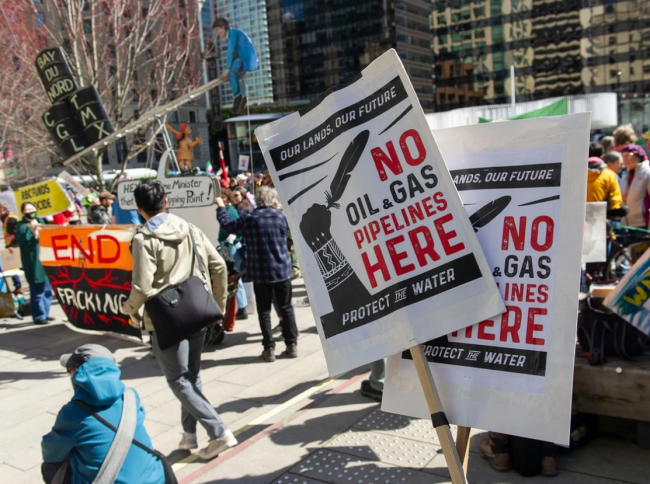Articles Menu

Aug. 23, 2025
An international court ruling on climate change has prompted 34 local groups to call on the B.C. government for stronger climate action, including phasing out fossil fuels.
The groups, which include environmental advocates, scientists, youth, and health care professionals, including the Canadian Association of Physicians for the Environment, this week sent an open letter asking Premier David Eby to abide by a recent advisory from the International Court of Justice saying governments must protect people from climate change.
The United Nations’ top court said countries could be in violation of international law if they fail to take measures to protect the planet from climate change, and nations harmed by its effects could be entitled to reparations.
The non-binding opinion, backed unanimously by the court’s 15 judges, was hailed as a turning point in international climate law.
The letter from the B.C. groups says the International Court of Justice has established that climate action is not a political choice, but a legal duty grounded in international and Canadian law.
“This opinion from the world’s top court makes it crystal clear: governments — including here in B.C. — have a legal obligation to act with urgency on climate change,” said lead author Andrew Gage, staff lawyer at West Coast Environmental Law.
B.C.’s Environment Minister Adrian Dix acknowledged that LNG creates millions of tonnes of CO2 but the province is also building 10 renewable energy projects.
“I think what we’re doing in B.C. is significant in the world at a time when others, especially American jurisdictions because of the American federal government, are going in other directions” on climate action.
Dix said B.C. has a difficult task of weighing climate change action with keeping B.C.’s economy strong because of the demand overseas for what he calls “lower emission LNG.”
“There are always going to be people who want to push you to do more,” he said. “I hear from the groups, but I also think everybody has to acknowledge that this is a challenging time in the world.”
He added that he’s not arguing that LNG is lower emissions than coal as previous leaders have used to debate the issue but that B.C.’s LNG has lower emissions than other countries’ LNG.
Dix added: “Because of the action that has been taken on lowering methane emissions, the action that has been taken with electrification, the actions that we’re doing in terms of the transmission of clean energy, including the North Coast transmission line, these are significant steps.”
The groups are calling on for strengthening B.C.’s 2030 climate targets in the CleanBC review and end approvals for fossil fuel expansion.
With files from The Associated Press
[Top photo: File photo of an oil and gas protest in Vancouver. The International Court of Justice has recently stated that countries could be in violation of international law if they fail to take measures to protect the planet from climate change. Photo by Jason Payne /PNG]